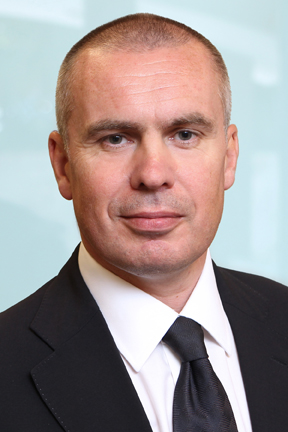PwC Report: Cyber, Economic Crime Is Growing
 Some 45% of financial services respondents to PwC’s 2014 Global Economic Crime Survey say they have been victims of economic crime.
Some 45% of financial services respondents to PwC’s 2014 Global Economic Crime Survey say they have been victims of economic crime.
And 39% of those respondents who reported economic crime during the survey period say they have been victims of cybercrime, as fraudsters increasingly turn to technology as their main crime tool.
Around half who have experienced economic crime during the survey period report an increase in the number of occurrences and the financial value of economic crime during the period [more so than other industries’ respondents].
The survey, which includes 1,330 responses from the financial services sector across 79 countries, found that theft remains the most common form of economic crime for financial services firms, reported by 67% of respondents. It is followed by cybercrime, 39%, money laundering, 24%, accounting fraud, 21% and bribery and corruption, 20%.
Respondents reported significant collateral damage of economic crime to their reputation with 29% of respondents citing this as the most severe impact of money laundering.
Garth Calow [pictured], Advisory Leader, PwC Bermuda, said: “Financial services organisations are finding that economic crime persists despite ongoing efforts to combat it.
“No organisation of any size anywhere in the world, including Bermuda, is immune to the impact of fraud and other crimes. The result of economic crime has a direct financial impact on organisations, but such crimes also often damage internal processes, erode the integrity of employees and tarnish the reputation of the organisation.”
Mr. Calow continued: “Cybercrime is growing and the methods are constantly evolving – we see no abatement in attacks on the infrastructure of banking institutions.
“So it is concerning that 40% of all financial services respondents believe that it is unlikely their organisations will experience cybercrime in the next 24 months. Financial services organisations need to recognise cybercrime as a risk type and establish proper cybercrime reporting.”
Where Does Economic Crime Occur?
PwC said, “Certain cyber threats ebb and flow – for instance, the Middle Eastern cyber-attacks that targeted several large U.S. banks in 2012 and 2013 appear to have receded.
“The U.S. has seen dramatic increases in financial services economic crime – from outages created by Distributed Denial of Service [DDOS] attacks to massive ATM withdrawals by organised criminal groups. Credit card fraud has become more pervasive as the US has yet to embrace the Chip and PIN system.
“In Japan, phishing scams have targeted bank customers’ personal computers via virus, using fake pop-up windows or e-mails masquerading as legitimate internet banking interfaces to trick customers into inputting their personal information.
“PwC cyber-security experts have also perceived a rise in cybercrime from Africa, which correlates with big government initiatives to roll out broadband in that region. Industry sources also indicate that cybercriminals are relocating to South Africa from Europe due to increased co-operation between law enforcement agencies in the EU.”
Who commits fraud?
PwC said, “External fraudsters are still the main perpetrators of economic crime for the majority of financial services organisations [57%]. Most internal frauds are committed by junior staff [39%] and middle managers [39%] with a fifth of internal economic crime committed by those in senior management. The profile of the typical financial services internal fraudster is a male between 31-50 years old with a university level education.”
Read More About
Category: All, Business, Crime, News, technology


Over-reliance on computers will be man’s downfall! Automated computer trading nearly crashed the NYSE a few years back.
White collar crime gets a slap on de wrist while de guy on de street gets de book thrown at him!
SMFH
WRONG MABUMBO…Bernie Madoff ain’t seeing the light of day!